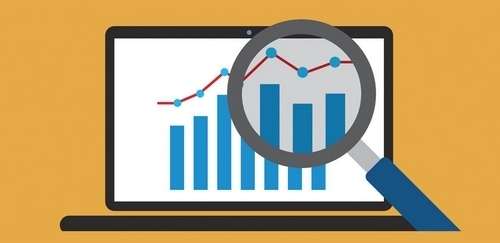For the proper understanding of the topic, let us break down and understand sales metrics first.
Table of Contents
What is Sales Metrics?
These are quantitative and measurable sales related parameters which are monitored to know the effectiveness of Sales. Tracking of Sales Metrics is essential for measuring and understanding the success of the sales strategy. Sales Metrics helps a firm in sales analysis.
Sales analysis to know how and why a particular sale took place or did not take place. Performing sales analysis is necessary to understand the strategic faults or strategic plus points which let us know what worked well or what did not work well.
Every organization would track their Sales Metrics for a better understanding of the implementation of the strategy. However, defining the right Sales Metrics and having an understanding beforehand with staff and employees of which Metrics matter to the organization and which don’t, helps develops the focus of employees on them. As a result, when the organization questions employees about Sales Metrics, they all are on the same page. Following are few of the common but crucial Sales Metrics that are to be tracked by every organization:
8 Sales Metrics you should track
1) Forecast vs Achievement :
Sales Forecasting is the first step at the very beginning of every sales year. The forecast is either taken from the sales people or their managers and a collective forecast are used in determining the target. Forecasting is a very important step as this determines the knowledge of salesperson about his territory and customers.
Giving any random numbers won’t work and when achievement is taken at the end of the pre-defined period, the gap between the two determines how knowledgeable the employee is. The lesser the gap the better but it should not happen that you provide very conservative figures and end up with high over-achievement. That says ill about your forecasting skills.
2) Target Vs Achievement :
A common Sales Metric, which is measured, tracked and worked upon by every organization. The aim is to achieve and exceed targets on an individual level, so that organization as a whole, hits its numbers.
3) Sales Growth :
Achieving targets are one part and getting growth is a whole different story. Usually, targets are given considering growth over previous years achievements, so even if you achieve 100% of targets in the current year, it translates to by-default growth. But there is another growth, which is calculated over targets. The more achievement there is over targets, the better the growth. Sales growth is highly rated sales metric in almost every industry because it means better profits.
4) Lead or Prospect Conversion:
Leads or prospects are an interested audience who may be potential customers. Events, roadshows, etc generate multiple leads. While some are strong leads, others are simply lurkers who are window shopping. The leads that are converted by the Salesperson, are termed as new customers, and having more new customers means better Market Penetration which is a very crucial Sales Metric for the organization to know about growth and future of the company in the market. Some may include converting lost leads in the same metric but converting every lost lead is practically impossible.
5) Sales per person :
The team members in a sales team are a vital factor for determining success. Performance of the team is measured by sales per person or per representative. The higher is the sales per rep, the better is the team performance.
It doesn’t usually happen that every person in the team performs better and has higher sales. There is always one ailing territory that doesn’t perform but at the same time, there is also a territory that overperforms. Customers or targets of both are to be properly distributed for better results on an individual level.
6) Customer Upgrades :
Every salesperson will have selected customers for his specific area. Some of them will be users from a long time. Most of the companies today have more than one product to offer. The market trend is having a low segment product, mid-range product, and a high segment product. This is done to prevent customer shift from one brand to other.
Supposing a customer uses a product Apple iPod, then the sales rep should try to convert him to iPhone and the iPad and the MacBook. All of these are upgraded products of the same company. Customer upgrades bring additional revenue from the same customers while the company offers them better products. It is an important Sales metric to be tracked which sheds light on additional revenue generation from existing customers.
7) Average Sales Cycle :
Sales cycle is the time from the first visit to the customer to realizing the sale. The Sales cycle determines the nature of efforts put by the sales rep for closing the sale. A sales cycle is kept as small and quick as possible. While in startups and medium scale organizations, it can be achieved faster, in case of multinationals and conglomerates, this can be a time-consuming process over following of SOPs and guidelines set by the organization.
This is where proper forecasting comes into the play. If a sale is forecasted to close in the month of May but realizes in December, that increases the sales cycle drastically. It also determines the efficiency of the Sales rep and his business acumen.
8) Sales nature :
The nature of sales carried out is also an efficient Sales Metric determinant. It offers insights on the nature of the deal, time spent and in turn the average efficiency of the Sales rep. Here the few subtypes
a) Average time spent selling :
It is rumored that a salesperson works only for about 4 hours in the day (This is in case of field sales) and most of his time is spent either traveling or waiting for an appointment. At times the appointments get canceled and the productivity goes further low. Thus, having a sales metric which can determine the productivity is useful to understand the nature of Sale.
b) Average Sales value :
The larger the deal, better will be your average sales in terms of value and it would also justify your cost and expenses. Having a better average would help the organization in better business volume and better profits.
c) Sales call :
A salesperson would invariably do a sales call. While quality matters and not quantity, in order to standardize, every organization will have a standard number of sales calls to be made per rep, per day. It is observed that at times, only regular customer visits bring conversion. Customers develop relation and trust with the salesperson and the work is done. Hence the organization monitors this sales metric very seriously. Further sales calls are analyzed byproducts discussed during the call, follow up on the queries if any, planning of calls for the entire month, number of times a customer is met in a month etc. This sheds light on the call productivity and work done per call.
Advantages of Tracking Sales Metrics
- Management is always updated about the progress of the sales team. While they are involved in higher decisions, managements ensure they have dedicated focus for sales. Tracking and analyzing Sales Metrics helps them to understand the current scenario of the market and their company.
- Sales metrics help in the evaluation of salesperson and his performance. Since most of the sales persons work in the field and not in offices. Their supervisors are unable to know their work every day and this is avoided by tracking of sales metrics.
- Employee appraisal is another reason behind tracking Sales Metrics. The appraisal, promotions, and recognition are based entirely on tracking of these metrics since they give a deep analysis of employee output and this helps to avoid any partiality towards the deserving employee.
- As an organization, if sales metrics per person are met, it is safe to assume that the organization is getting close to its objectives.
Disadvantages of Tracking Sales Metrics
- Either a special person is to be appointed for regular and timely tracking or sales teams have to take special time off the field to do that. Either way, it’s a loss for the company. In the same time, the Sales team can maybe crack a deal instead of doing admin work.
- While tracking Sales metrics is effective, it would also mean interference in the working of the employee. Not everyone likes to be micromanaged. People have their working style which gets results but following the set parameters of metrics may interrupt their working.
Liked this post? Check out the complete series on Sales

